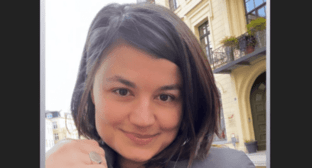03 August 2012, 19:00
Cossack guards won't eliminate interethnic tension in Kuban region, experts say
The Governor of the Krasnodar Territory Alexander Tkachov has explained the formation of Cossack police in the Krasnodar Territory (also known as Kuban by the name of the river) by the need of "squeezing" the aliens, in particular, "Caucasian nationals" out of the region. These Tkachov's statements, broadly discussed in media and blogs, were made on August 2 during an expanded sitting of the Collegium of the Chief Department for the Krasnodar Territory of the Russian Ministry of Internal Affairs (MIA). Regional politicians and community leaders recognize the existence of interethnic problems, but note that Cossack guards will not eliminate the reasons.
On July 26, at their 65th session, the Deputies of the Legislative Assembly of the Krasnodar Territory adopted in first reading the bill on setting up the "Cossack militia" in the territory. The bill assumes that starting September 1 men dressed in traditional Cossack clothes and headgear will be on duty together with policemen in public places, and will be paid for that.
On August 2, at the above sitting, Governor Tkachov told the policemen exactly on how Cossack guards would help them.
He said that Cossack guards would allow residents of the Krasnodar Territory to feel more confident.
"When Cossacks will close to you – the policemen, you'll feel more confident. Cossacks can do what you can't – to some extent, at the everyday, subconscious or conceptual level," Mr Tkachov assured the MIA employees.
"Thus, I'm sure, there is no other way – we'll squeeze out, install order, ask for documents that deal with migration policy (from where and for what purpose the person has come, etc.). For those who have come here just 'to make fool' and to be engaged in provocations or illegal business to understood that they better not arrive in Kuban; that Kuban people live here; they have their own laws; and there are tough guys here," the head of the territory has summed up.
"Tkachov sees that the concern about the inflow of migrants is a painful knot in his region and tries to show the population that the authorities are somehow reacting to the growing discontent of citizens," Sergey Obukhov, Deputy Chair of the Committee for Public Associations and Religious Organizations of the Russian State Duma and an MP from the Krasnodar Territory (from the CPRF – the Communist Party of the Russian Federation) gave his comment to the "Caucasian Knot" correspondent.
At the same time, Mr Obukhov expressed his doubt that the establishment of Cossack patrols would reduce the interethnic tension in the Krasnodar Territory.
"We need to address the problem comprehensively. Entrepreneurs, the Olympic construction and shadow businesses are interested in the influx of migrants. If we fail to look at the root of the economic interests of the ruling clans and business elites, all the questions about the migration policy will only shake the air," Sergey Obukhov has summed up.
Mikhail Savva, who is managing the project "Legal Assistance to Migrants in Krasnodar Territory", said the situation in the region "is really tense."
He pointed out that this is especially noticeable on the Black Sea coast of the Krasnodar Territory – from Anapa to Sochi. In the Olympic capital, the problem had arisen in the context of the inflow of young people from Dagestan and Chechen Republic to construction of Olympic objects and facilities.
"It is unlikely that introduction of Cossack patrols will settle the problem," Mikhail Savva believes. "Yes, the Cossacks will be able to prevent some conflicts and detain certain infringers; however, to finally solve the problem, we shouldn't have its bearers in the territory."
Author: Andrey Koshik Source: CK correspondent




